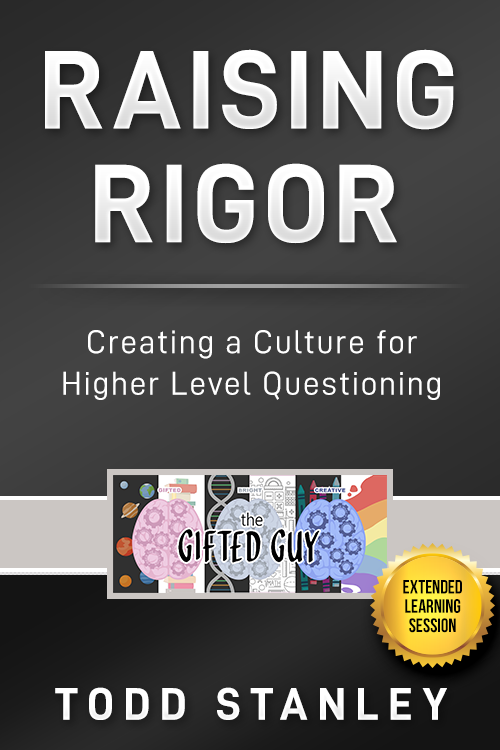In the ever-evolving landscape of education, the quest to engage students in a deeper, more meaningful learning experience is paramount. Todd Stanley, a seasoned educator, offers a roadmap to this journey in his extended learning session, “Raising Rigor: Creating a Culture for Higher-Level Questioning.” This course provides a wealth of insights for transforming classrooms into vibrant spaces of inquiry and intellectual stimulation.
Creating a Culture of Inquiry from Day One
The journey toward a thought-provoking classroom begins on the first day. Stanley highlights the importance of setting a tone where higher-level questioning is the norm. “In your classroom, you want to ask questions that are going to raise the rigor, that are going to challenge students to think,” he states. It’s about establishing an environment where this level of engagement is both expected and embraced. Here are some ways to create a culture of inquiry:
- Early Expectations – Communicate from the start that the classroom will be a place for challenging discussions.
- Routine Rigor – Normalize intellectual rigor by integrating higher-level questioning into daily activities.
Involving Students in the Art of Questioning
The key to enriching the learning environment is by involving students in the questioning process. Encouraging the students to both ask and answer questions increases engagement and develops critical thinking. “Make sure that every student answers the question. In my classroom, I had a no hands-up policy,” Stanley advises. This inclusive approach ensures that every student is an active participant in their learning journey.
Differentiation in Questioning: Catering to Diverse Learners
Recognizing diverse learning stages among students is crucial. Stanley discusses the importance of tailoring questions to individual needs, ensuring that every student is appropriately challenged and supported. This approach is vital for a balanced and inclusive classroom environment. Teachers can achieve this by varying question complexity and format, thus catering to different learning styles and comprehension levels. This strategy ensures that all students remain engaged and feel a sense of achievement in their learning process.
Fostering a Safe and Respectful Questioning Environment
Creating a space where students feel secure to explore and take intellectual risks is essential. Stanley emphasizes the need for an environment that teaches respect for diverse viewpoints and open-minded engagement in discussions.
Encouraging Reflection and Self-Assessment

One critical aspect of developing higher-level questioning skills in students is to encourage them to reflect on their own learning. Reflection and self-assessment are powerful tools that help students understand their thought processes and learn to evaluate their responses critically. Stanley suggests using techniques such as boomerang reflection, where students revisit initial ideas after a learning session to assess how their understanding has evolved. You can achieve this through:
- Reflective Practices – Encourage students to regularly reflect on their learning and thought processes.
- Continuous Self-Assessment – Teach students to evaluate their responses and learning progress, fostering a deeper understanding of their educational journey.
Cultivating a Thinking Classroom
In this enlightening session, educators are equipped with practical strategies to enhance classroom discourse. By implementing these approaches, teachers can transform their classrooms into dynamic centers of inquiry and critical thinking.
Stanley concludes with a poignant reminder: “We need to make sure that we are engaging students that very first day of school.” This course serves as an essential guide for educators committed to nurturing a culture of higher-level questioning, preparing students for a lifetime of thoughtful, engaged learning.
Discover how to reshape the educational experience by exploring “Raising Rigor: Creating a Culture for Higher-Level Questioning (ELS),” and unlock the potential of your classroom as a catalyst for transformative learning.


